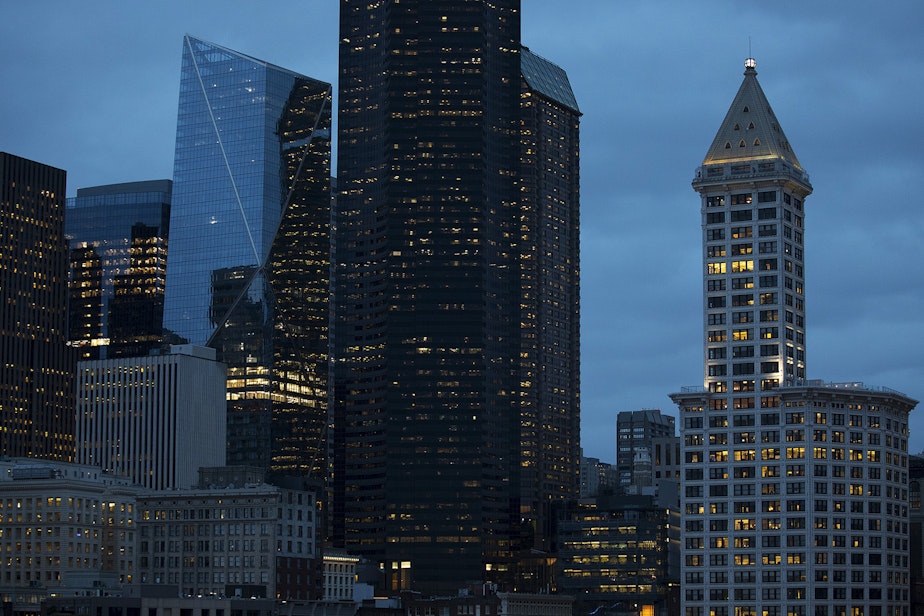Coronavirus is already 'devastating' small businesses in Seattle

The coronavirus outbreak is quickly cooling the Seattle region's economic engine, prompting concerns that it won't rev up any relief for a while.
Some are worried that the government's response to the pandemic won't adequately address the needs of small businesses and workers.
“We’ve already seen several dozen restaurants, mainly close their doors," said Jon Scholes, president and CEO of the Downtown Seattle Association. "Hundreds of layoffs have already taken place, in addition to furloughs. Hotel occupancies have plummeted from about 75% last week to likely around 20-30% currently. Conventions into April cancelled. Group business gone. And the 300,000 plus employees that work in downtown every day, many of those are working from home."
"Downtown is really the economic engine for our city and region and we’ve cut off the gas supply," he told KUOW's Kim Malcolm.
Seattle is already a high-cost city. Many businesses are responding to the lack of customers by cutting hours and staff. Restaurateur Tom Douglas has closed 12 of his 13 restaurants, for example. The Seattle Stranger newspaper has temporarily laid off 18 employees while halting all print production.
Scholes notes that restaurants are already a low margin business. With the extreme hit from the COVID-19 social distancing, many are already considering how long they can last.
That concern is followed up by a perceived lack of awareness of the issue by leaders. Congress has passed a package for coronavirus relief, which includes paid sick leave. The president has proposed payroll tax relief.
Sponsored
“We need the federal government to step up, quickly, in a big, meaningful way," Scholes said. "We need cash relief to workers and small business owners. Small business loans are not what small business are looking for right now. They don’t need more debt. Particularly those low margin businesses are not looking to pile on debt. Payroll tax exemptions are one thing, but if you’ve cut your payroll that’s not going to do much for you and it’s not going to do much for the workers either."
"We need to be looking at a massive relief package, much like what was put together following 9/11. And we need to move quickly. I think the president’s remarks last night completely miss the mark on the scale of what we are dealing with. And the travel ban he mentioned is, in effect, like telling your neighbors not to smoke on your lawn when your house is burning down. We need to put out the fire. The house is on fire, that’s what we need to focus on.
In the meantime, Scholes calls the effect on Seattle's small businesses "devastating."
“It’s not a normal day downtown, and hasn’t been for a week,” he said. “Empty sidewalks; you look at buses with two or three people on them. You look at bus stops that you are used to seeing crowds and crowds of people standing around at 6 o’clock and the sidewalks are empty, the streets are empty. There are still folks downtown, there are still folks going about their business, but it is not a normal day by any stretch of the imagination in downtown Seattle.”
Scholes does offer some advice to help local, small businesses in the area.
Sponsored
- If you can consume, and support businesses while following guidelines of public health officials, do so.
- Donate to arts organizations while audiences are absent or low.
- Buy gift cards at restaurants and shops which you can redeem later.






